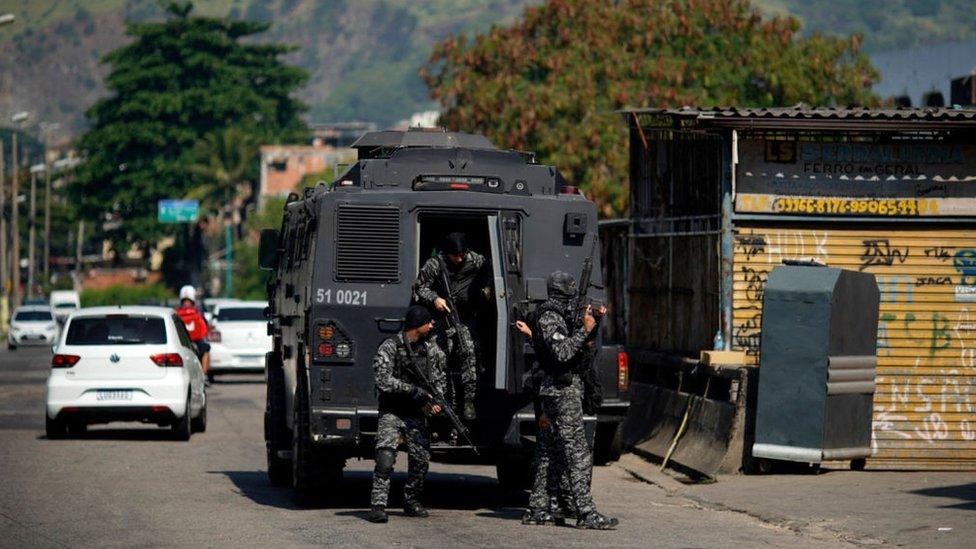Brazil violence: Rio police accused by residents of abuses in raid
- Published
Aerial footage shows suspects of a wanted drug gang trying to escape police
The United Nations human rights office has strongly criticised a police raid against suspected drug traffickers in Rio de Janeiro, amid allegations of abuse and extrajudicial executions.
The deadliest police operation in the city's history has left 28 dead, including a police officer.
Residents say police killed people who wanted to surrender and entered homes without a warrant.
Police have denied any wrongdoing, saying officers acted in self-defence.
Rio de Janeiro is one of Brazil's most violent cities, and vast areas are under the control of criminals, many of them linked to powerful drug-trafficking gangs. Security forces are often accused of disproportionate force during their anti-crime operations.
Thursday's raid in Jacarezinho, one of the city's largest slums known as favelas, was carried out by about 200 heavily armed police officers and included an armoured helicopter with a sniper. The area is dominated by Comando Vermelho, or Red Command, one of Brazil's largest criminal organisations.
A television helicopter filmed men jumping from rooftops, while desperate residents posted videos on social media showing intense shootouts as they claimed police had invaded their houses and used excessive violence.
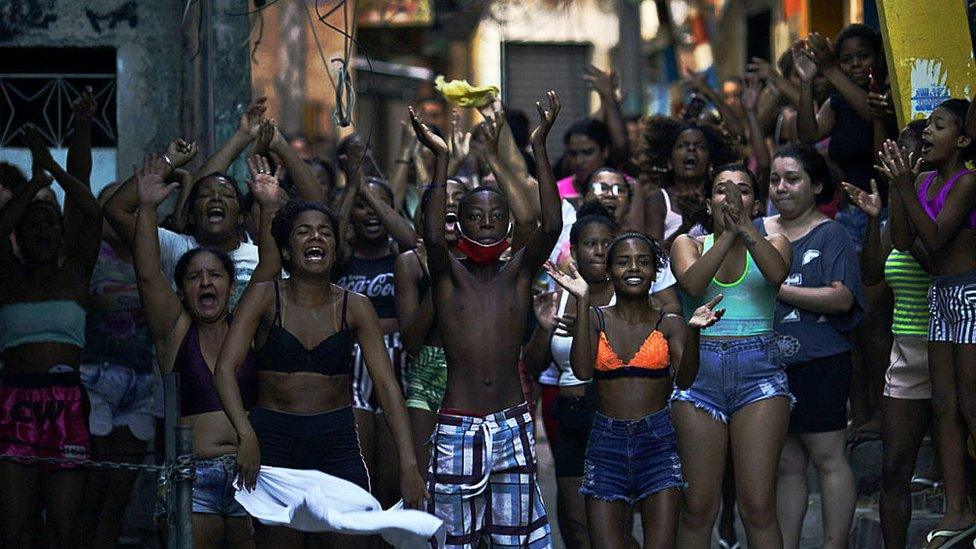
Residents in Jacarezinho protested on Thursday after the deadly police operation
"There are boys who have been cornered in the house and want to surrender," one resident said, referring to the suspects. "And the police want to kill them. They have even killed some in front of us."
In another video, a resident filmed a police officer standing next to a house and said: "They're cornering [the suspects]. They don't want to let the boys surrender."
'Lots of pools of blood'
Maria Júlia Miranda, a public defender, said residents told her a suspect was killed in the bedroom of an eight-year-old girl where there were blood stains on the floor and on her bed, and that the family had witnessed the alleged execution.
Ms Miranda said she was "shocked" by seeing "lots of pools of blood... and walls with bullet marks" when visiting the favela. There was also evidence that the scenes of the killings were not preserved, she said, with bodies being removed. "On these cases," she added, "there was probably an execution."
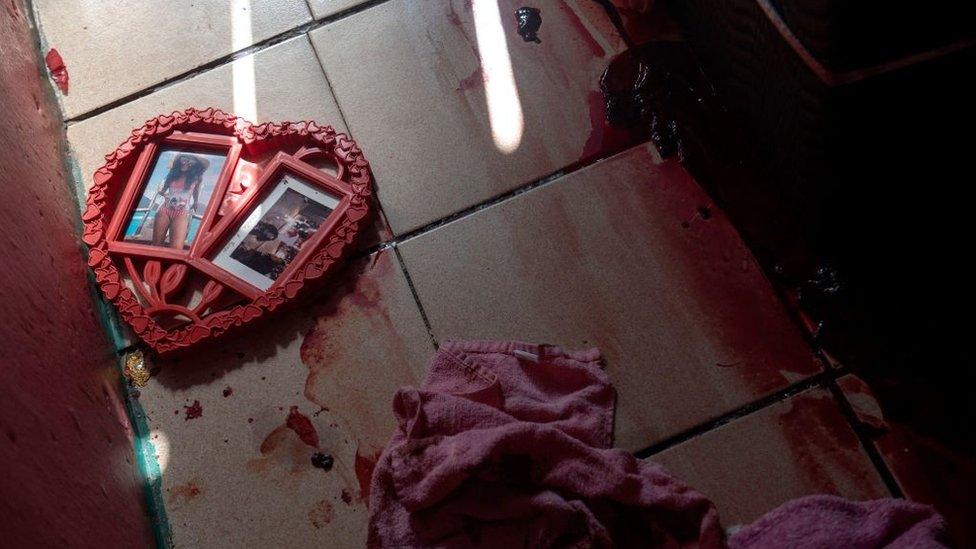
A suspect is alleged to have been shot dead in this child's bedroom
Human rights groups, including Amnesty International, said they had also received reports and images from residents saying that their houses had been invaded, and that the police had killed people when they already offered no risk.
"It's completely unacceptable," Jurema Werneck, executive director of Amnesty International Brazil, said in a statement. "Even if the victims were suspected of criminal association, which has not been proven, summary executions of this kind are entirely unjustifiable."
The level of violence caused shock even in Rio, which for decades has been plagued by high levels of crime and police brutality. Between January and March, 404 people were killed in police operations in the city's metropolitan area, according to official figures.
Almost all raids happen in communities where residents are mostly black and poor, and some of the victims are not even suspects. Critics say the operations are often badly planned and frequently end in bloodshed while allegations of misconduct by officers are rarely investigated, with impunity virtually the norm.
"This kind of operation doesn't dismantle criminal groups, it only causes pain and distrust," Igarapé Institute, a Rio-based think tank, said in a statement. "The social impact of this case is still unknown but will certainly last for years."
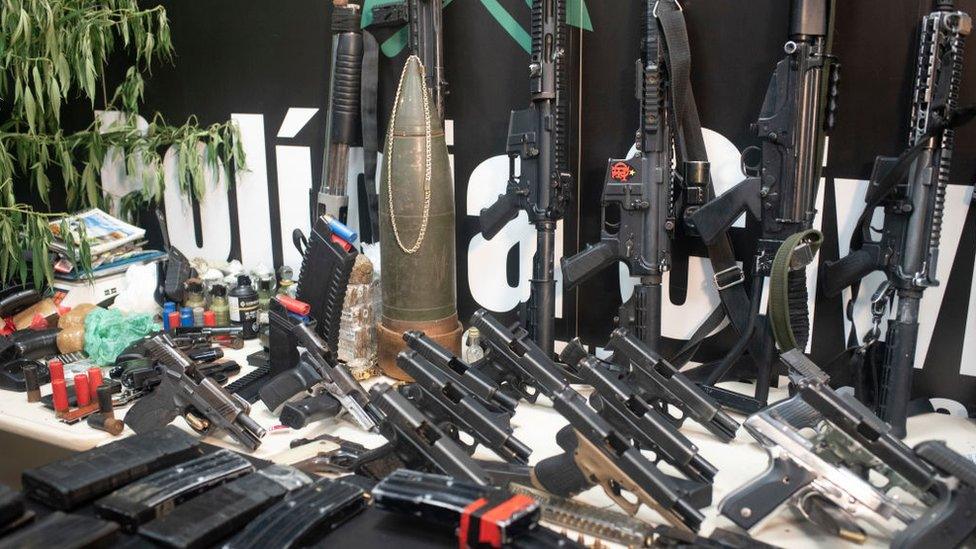
Police show the weapons they say were seized during the operation
Amid widespread condemnation, the United Nations human rights office called for an independent investigation, describing it as a "long-standing trend of unnecessary and disproportionate" police operations.
"You have the institutions which control these operations... So, it appears that collectively, they are not succeeding in stopping these kinds of really disturbing, over-the-top, lethal operations. So something is clearly wrong there," spokesman Rupert Colville said in Geneva.
The officer killed was named as 48-year-old Inspector André Leonardo de Mello Frias, who was shot in the head while trying to remove a barricade set up by the criminals. Police have not yet identified the other people killed but said six suspects had been arrested.
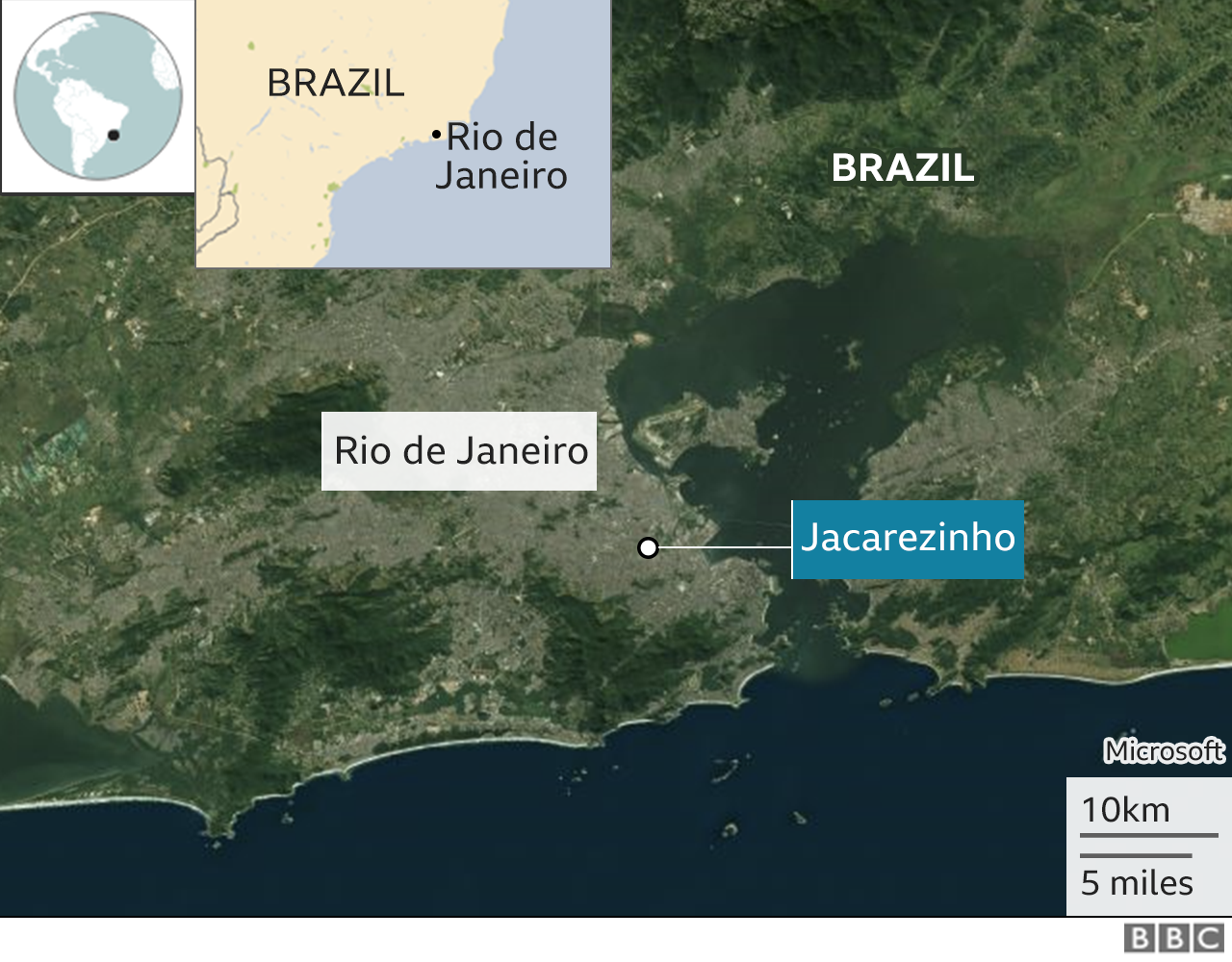

Rodrigo Oliveira, a police chief, defended the police's actions, saying that officers acted within the law. "The only execution that took place was that of the police officer," he said at a news conference where police displayed an arsenal of weapons that had been seized, including six assault rifles and a submachine gun.
Police say they launched the operation to serve 21 arrest warrants as part of a year-long investigation that suggested gangs were recruiting children, among other crimes. Experts again questioned the force used given that minors are used by criminals across the city.
"This is cruel, barbaric," Joel Luiz Costa, a lawyer from Jacarezinho, said in a video posted on Twitter. "Twenty-five people or more were killed. Did it end drug trafficking? Will this end drug trafficking?"
The raid happened despite a court ruling last June that restricted police action in poor areas of Rio during the pandemic unless it was deemed essential. The Rio state public prosecutor's office said it would launch an investigation while the police said they would also open an inquiry.
There has been no comment from far-right President Jair Bolsonaro. A former army captain, he supports changes in legislation that would protect officers from prosecution if they kill suspects, and has previously said that "a good criminal is a dead criminal".
Related topics
- Published6 May 2021
